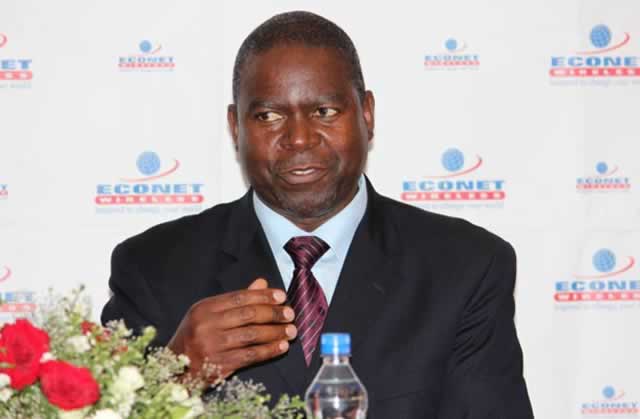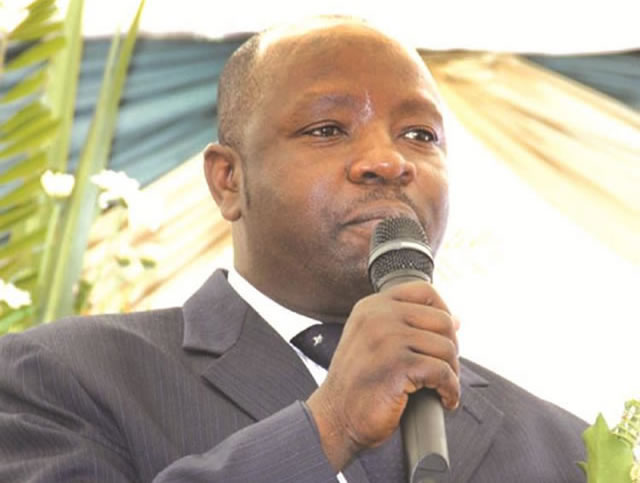Econet Wireless squeals

Felex Share Herald Reporter
IT is said if gold rusts, what will iron do? This axiom was manifest in the admission by Zimbabwe’s biggest telecommunications company, Econet Wireless, that its multi-million dollar operations have been hamstrung by economic sanctions that poisoned the operating environment.
The revelation debunks the claim by Western countries and the opposition MDC-T that the embargo was only a travel ban targeted at President Mugabe and his inner circle.
Observers said Econet’s expose was clear testimony that the sanctions were biting everyone amid reports that they had cost the economy over US$42 billion in revenue since the turn of the millennium.
Announcing investment figures recently, Econet chief executive Mr Douglas Mboweni decried the effect of the sanctions, saying they had created a “very difficult environment” for the blue chip company.
He said the mobile phone company would continue investing in Zimbabwe despite the difficult environment.
“We are not going to stop trying to serve our community despite what has been a very difficult environment because of factors like sanctions.
“We cannot afford to give up, as businesspeople we have to do everything possible to mobilise investment and find innovative solutions for everything we do.”
Mr Mboweni said Econet had invested US$1,2 billion since inception 15 years ago and was working with Government to “help the country get back on its feet” without giving a breakdown of how the company was being affected by the sanctions.
Econet corporate communications manager Mr Ranga Mberi yesterday declined to explain how the company had been affected, although his company was no exception.
Several companies have had their funds intercepted by the US State Department’s Office of Foreign Assets Control as part of the operationalisation of the sanctions regime.
A source within Econet said it was difficult to get offshore lines of credit because of the illegal sanctions.
“You should understand that the telecommunications business is capital intensive and needs the support of a strong financial services structure,” the source said.
“If you look at the financial services market in Zimbabwe, it is shallow and not able to syndicate the required resources for expansion. As such, these big companies like Econet Wireless need to go offshore, but now the perception of Zimbabwe being under sanctions affects everything.”
The United States passed the Zimbabwe Democracy and Economic Recovery Act in 2001 that has since been renamed Zimbabwe Transition to Democracy and Economic Recovery Act, that cut all lines of credit from multilateral lending institutions, prompting an assault on, and decimation of the Zimbabwe dollar
The source said investors hesitate to invest in a country that is under sanctions.
“These lenders and investors listen to the International Monetary Fund, the World Bank and the United States and they become sceptical to inject money for fear of being labelled Zimbabwe or Zanu-PF supporters,” said the source.
“If you recall, Barclays Bank a few years ago came under fire, being accused by the British of buying treasuries, which banks do, from Zimbabwe.”
Midlands State University lecturer Mr Christopher Gwatidzo said Econet’s statement was clear indication that the sanctions were biting every sector of the economy.
“They have realised that they cannot continue business pretending that sanctions are not there,” he said.
“They are now feeling the damage in their pockets and now want to see a solution coming out to enable them to continue with their business.”
Another commentator Mr Goodwine Mureriwa said if Econet was genuine in their call, it meant Zimbabweans were now committed to the development of the nation.
“People are awakening to the reality that sanctions are biting everyone,” he said. “The business community is realising that the more there are hostilities, the more they lose.”
Zanu-PF said in its election manifesto dubbed “Taking back the Economy: “Indigenise, Empower, Develop and Create Employment” that the country lost US$42 billion since 2001 due to the sanctions.
The sanctions had negative effects on vulnerable groups that saw their livelihoods declining to pitiable levels.
The party has come up with intervention mechanisms to bust the illegal economic sanctions, chief among them its economic blue print, the Zimbabwe Agenda for Sustainable Socio-Economic Transformation (ZimAsset), set to spearhead the turnaround of the economy over the next five years.









Comments